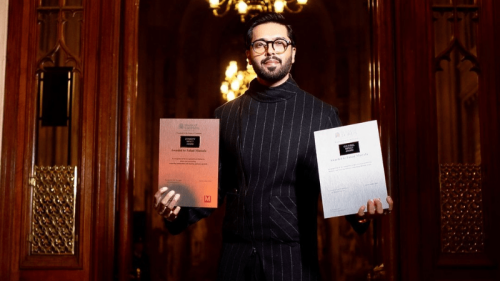IN a globalised world, despite the shrinking of distances and the coming together of cultures, hateful ideologies persist. Discrimination and violence on the basis of race, religion, and sect continue to bedevil our seemingly modern world, as ancient tribal prejudices refuse to die down. Amongst the hateful ideologies that have affected a large portion of humanity is Islamophobia, where Muslims are demonised and isolated either due to their beliefs or the violent actions of a few wayward groups and individuals acting in the name of Islam.
In this regard, Foreign Minister Shah Mahmood Qureshi, while virtually addressing a session of the UN’s Economic and Social Council, highlighted the issue of Islamophobia. Without naming India, Mr Qureshi denounced the “discriminatory citizenship laws ... and repeated state-sponsored pogroms against minorities” while also calling for a “global alliance against the rise and spread of Islamophobic as well as other violent nationalist and racist groups”.
Read: UNGA adopts Pakistan-led resolution on 'promotion of interreligious, intercultural dialogue'
Indeed, the virus of hate has spread far and wide across the world. The foreign minister has rightly made reference to India, where the Hindu hard right has made a mockery of Indian secularism by hounding the country’s Muslim minority. But even elsewhere in the world, for example in parts of Europe, anti-Muslim and anti-foreigner sentiment is high, with some states led by ultranationalist regimes echoing the poisonous rhetoric that their fascist forebears espoused in the mid-20th century, in the lead-up to World War II.
Therefore, there is a need for a global response to racist and fascist ideologies that threaten minorities. In many cases, foreigners and those declared the ‘other’ are easy scapegoats for society’s failures, with all ills blamed on ‘outsiders’. This conundrum has been succinctly summed up by Mesut Ozil, the star German footballer of Turkish descent: “I am German when we win, an immigrant when we lose.”
However, despite the deep-seated prejudice against Muslims and foreigners in many societies, the fact that extremist militants have greatly contributed to the discrimination against Islam must also be acknowledged. Transnational terrorist outfits such as Al Qaeda, the self-styled Islamic State group and others of their ilk, claiming to be working for the glory of Islam, have in fact done a great disservice to Islam and Muslims. Their large-scale slaughter of both Muslims and non-Muslims is antithetical to religious injunctions that place the greatest value on human life, and are in stark contrast with traditional Muslim thought.
Moreover, Islamist militancy is thoroughly a modern construct, a reactionary phenomenon born out of the injustice and repressiveness found in most Muslim states, and the colonial interventions of non-Muslim powers in places such as Palestine and Kashmir. The world community must therefore address both issues: the profound anti-Muslim prejudice evident in many societies, as well as the repressive systems in most Muslim states that help create the foot soldiers for religiously inspired militancy.
Published in Dawn, February 22nd, 2021













































